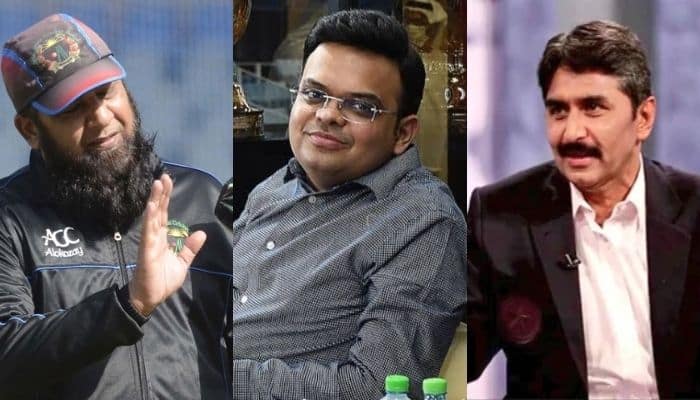 |
|
The upcoming ICC Champions Trophy 2025, scheduled to be held in Pakistan, has been plunged into uncertainty due to India's refusal to travel to the country unless the tournament is hosted at a neutral venue. This decision by the Board of Control for Cricket in India (BCCI) has ignited a firestorm of controversy, with several former Pakistani cricket greats voicing their disappointment and anger over what they perceive as a politically motivated stance.
Former Pakistan captain Javed Miandad, known for his outspoken nature, has labelled India's decision a “joke.” He contends that Pakistan cricket will prosper even without India's participation and calls for a boycott of India if they continue to refuse to travel. Miandad emphasizes that the financial allure of India-Pakistan matches should not come at the cost of compromising Pakistan's dignity.
Echoing Miandad's sentiments, former captain Inzamam-ul-Haq expresses his disappointment, highlighting the significance of the Champions Trophy for Pakistan. He sees it as a monumental occasion for Pakistan's return to the international cricket scene, a return that had been hampered by security concerns following the 2009 attacks. Inzamam argues that India's refusal to participate deprives fans of the thrill of an India-Pakistan clash and robs the game itself of a historic moment.
Former wicketkeeper and captain Rashid Latif also joins the chorus of criticism, suggesting that India's decision is driven by political motives rather than legitimate security concerns. He points out that other cricketing nations, including Australia, England, and New Zealand, have toured Pakistan without encountering any issues. For Latif, the fact that India is the only major team resisting feels unjust and establishes a damaging precedent.
Reports suggest that the BCCI might propose a “hybrid model,” where India's matches would be played at neutral venues such as the UAE or Sri Lanka. While this model was employed during the 2023 Asia Cup, it raises concerns about its impact on the tournament's integrity and undermines Pakistan's authority as the host nation. Critics argue that this approach merely perpetuates the rift between the two nations instead of fostering cricket diplomacy.
The India-Pakistan cricket rivalry is steeped in intense competition and political complexities, reflecting a long-standing tumultuous relationship between the two countries. Experts fear that India's decision could negatively impact the tournament's commercial appeal and hinder diplomatic efforts aimed at fostering harmony through sports.
Despite the challenges, Pakistan Cricket Board (PCB) officials remain resolute in their commitment to hosting the Champions Trophy successfully. Mohsin Naqvi, a PCB official, emphasizes Pakistan's resolve to showcase its capabilities in hosting major events safely and efficiently. This unwavering determination, he suggests, sends a powerful message about Pakistan's ability to stand independently on the global cricket stage.
The current situation highlights the delicate balance between sports and politics, with the India-Pakistan cricket rivalry serving as a microcosm of their larger geopolitical complexities. The Champions Trophy 2025 stands as a test case for the future of cricket diplomacy between the two nations, with the outcome likely to have significant implications for both on and off the field.
